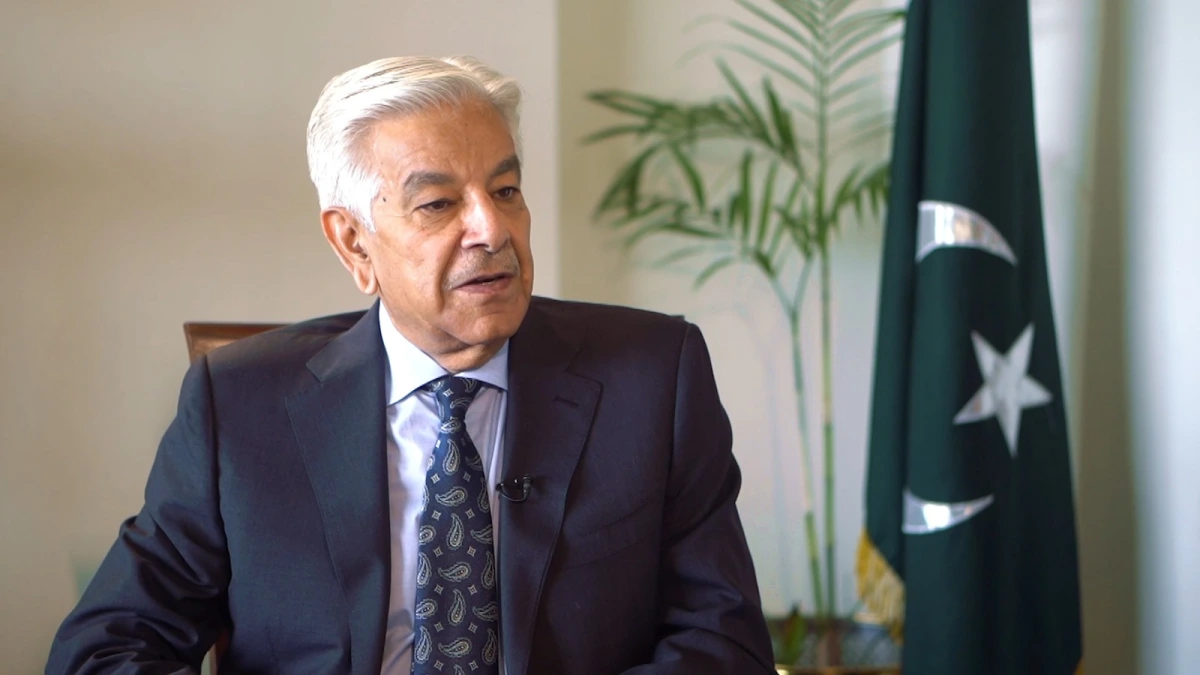Defence Minister Khawaja Asif has advocated the use of military courts to try civilians charged with attacking state infrastructure during the May 9 protests, terming these actions as “rebellion against the state”.
During an interview with Al Jazeera on Wednesday, Asif defended the arrests of thousands of civilians that took place in the aftermath of the detainment of Pakistan Tehreek-e-Insaf (PTI) leader, Imran Khan. Asif argued that these individuals deliberately targeted military facilities.
Asif stated, “These individuals planned and executed assaults on military offices, residences, and installations like airbases. Their actions were premeditated, not impulsive, reflecting the severity of the offenses committed.”
Nationwide unrest ensued on May 9 after the arrest of the former Prime Minister Imran Khan at the federal capital’s high court. This led to a wide-scale crackdown by the government against PTI leaders, supporters, and thousands of individuals accused of attacking civil and military installations.
This intensive clampdown prompted numerous PTI leaders, many being Imran Khan’s confidants, to abandon the party, a phenomenon termed “forced divorces” by the PTI leader.
Following this, civil and military leaders on May 17 approved a decision to invoke the Pakistan Army Act, 1952, and the Official Secrets Act, 1923 against those implicated in the May 9 riots. This decision was also approved by the federal cabinet on May 20.
However, human rights groups have condemned this move. The Human Rights Commission of Pakistan (HRCP) expressed its strong objection to civilians being tried under military law. While the HRCP agreed that those accountable for arson and property damage during the protests should face consequences, it emphasized the importance of due process.
Read More: Khawaja Asif Expresses Concern Over TTP’s Continued Use Of Afghan Soil For Attacks on Pakistan
Defending the government’s stance, Defence Minister Asif assured Al Jazeera of transparency in the legal proceedings, referencing the three-tier appeal process which includes the army chief, the high court, and then the Supreme Court.
Khawaja Asif stressed that the state was challenged when the protestors opted to target army installations on May 9 and 10. He added, “Imran Khan perceives the armed forces of Pakistan as his adversary, rather than any political party. If there were a martial law or army government in place, challenging that would be valid, but not the institution itself.”
In contrast, PTI has voiced opposition to the government’s decision and has demanded an independent inquiry into the incidents, insisting that the culprits were not associated with the party.
Prime Minister Shehbaz Sharif, during his address on Martyrs Reverence Day, described the tragic events of May 9 as being “sinisterly designed” with a “clear build-up to the shameful incident”. He suggested that a destructive thirst for power led to an unprecedented assault on state symbols and memorials, thereby compromising the nation’s identity and providing ammunition for the country’s enemies.
Sharif emphasized that the distressing events of May 9 should serve as a “wake-up call”.



























